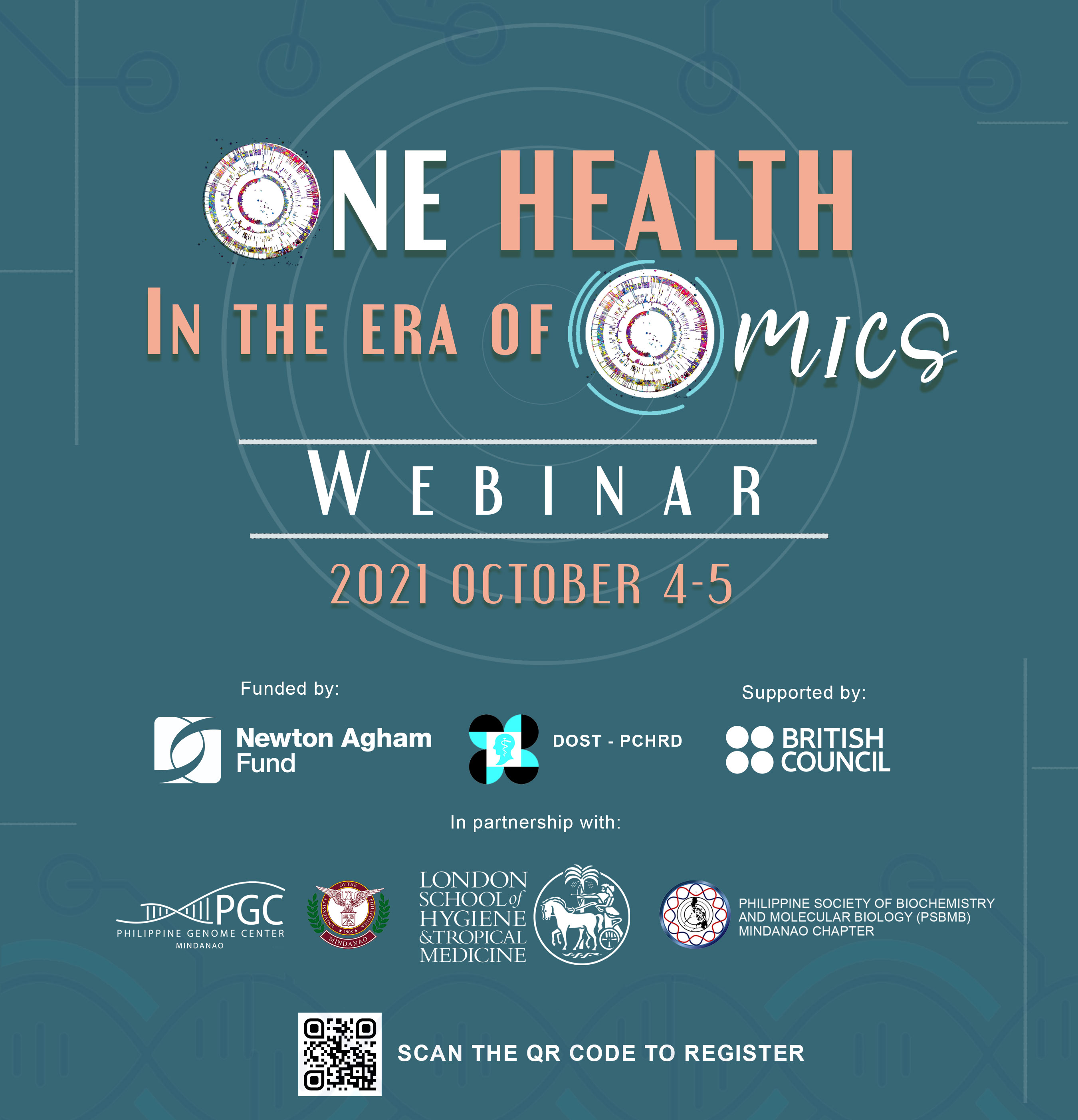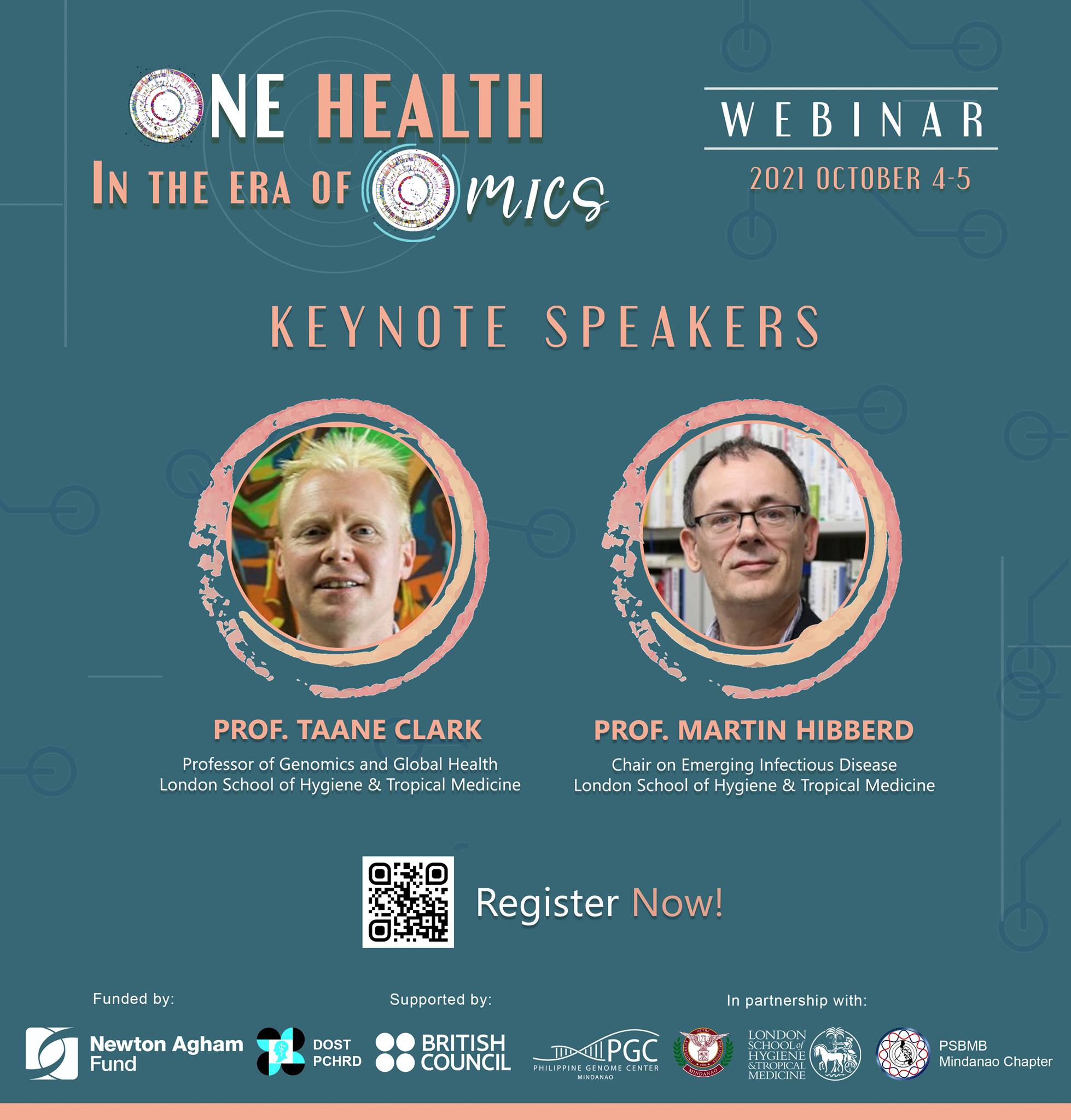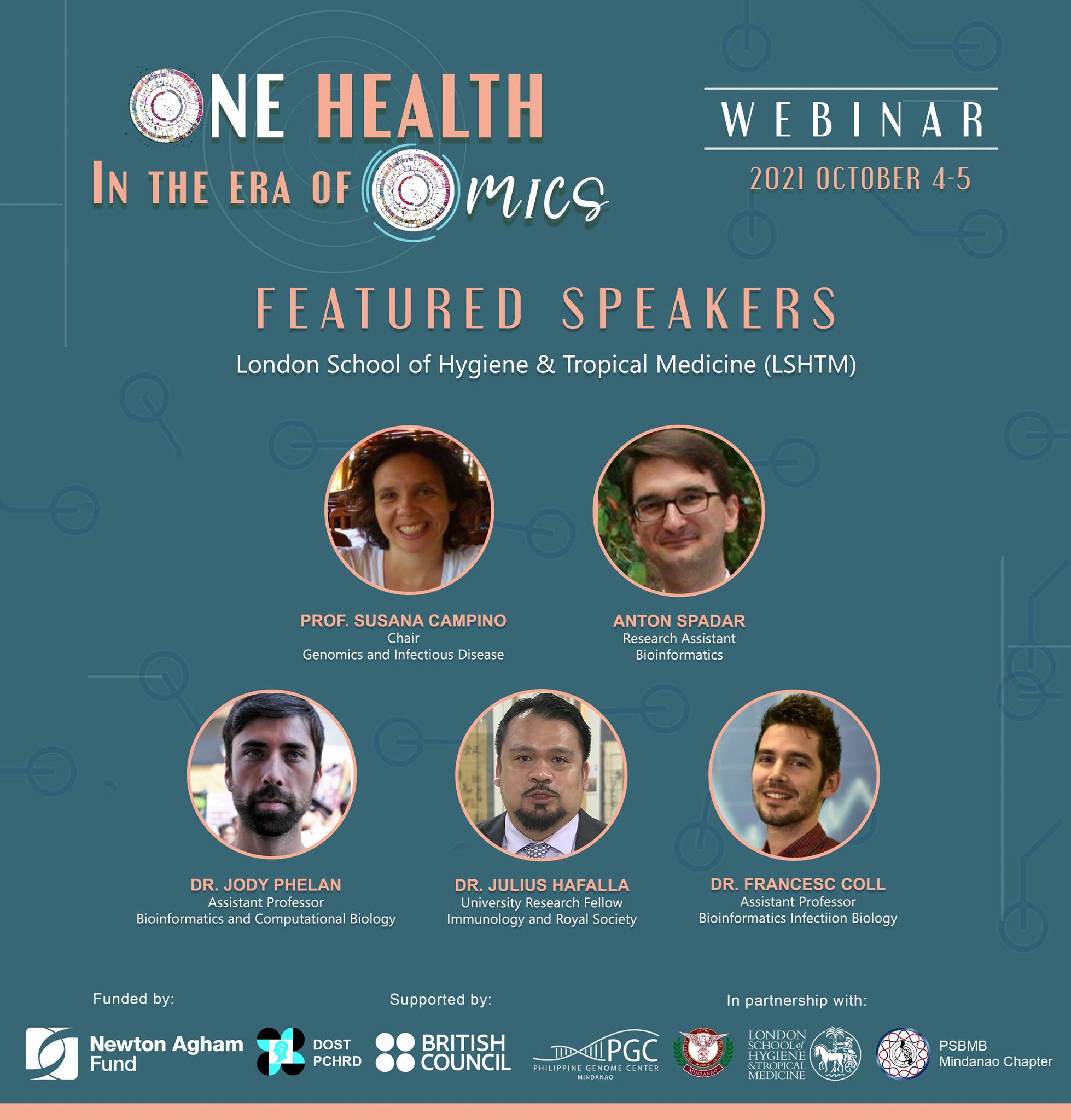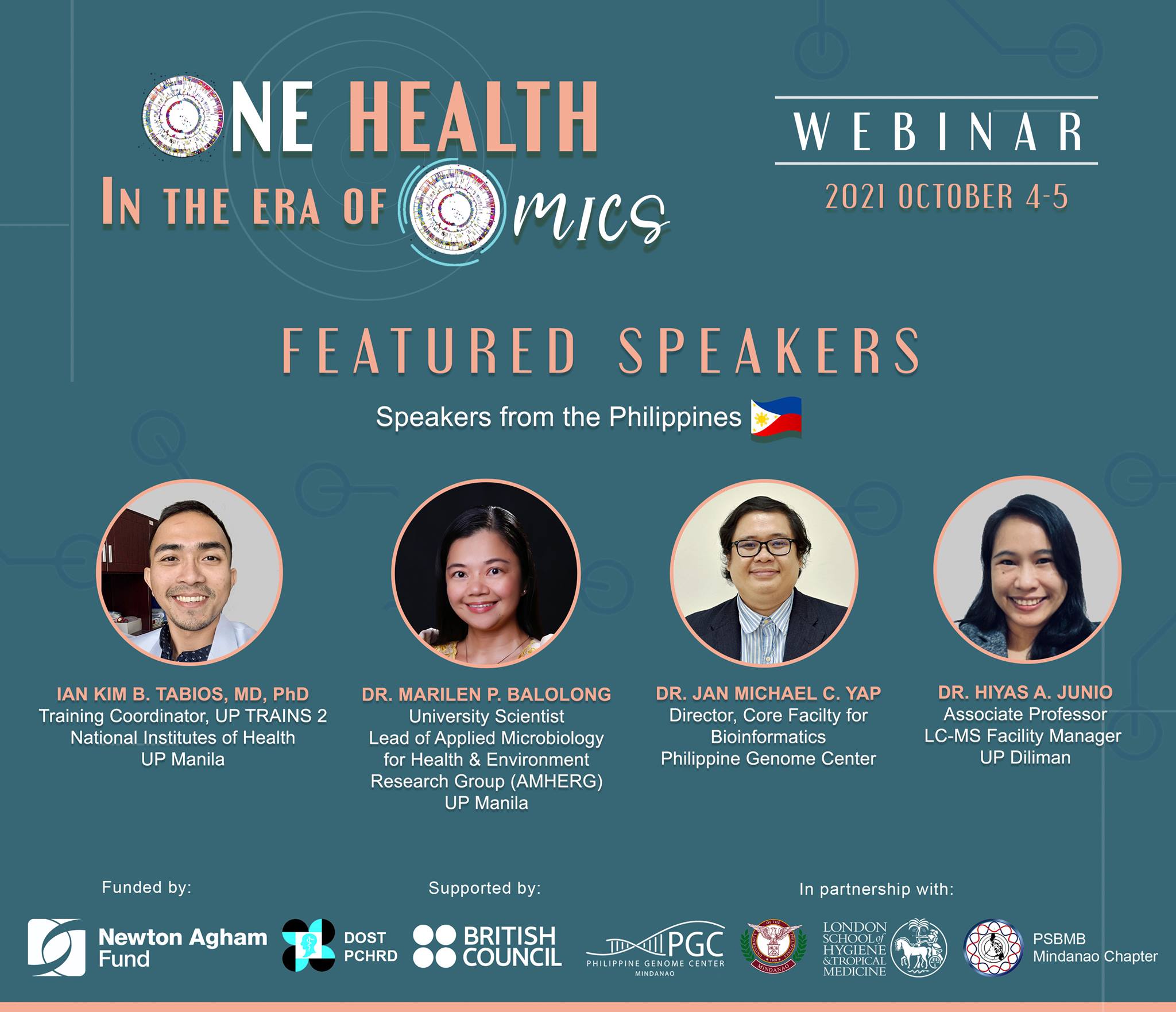Looking at traditional food as the alternate future of Philippine food culture
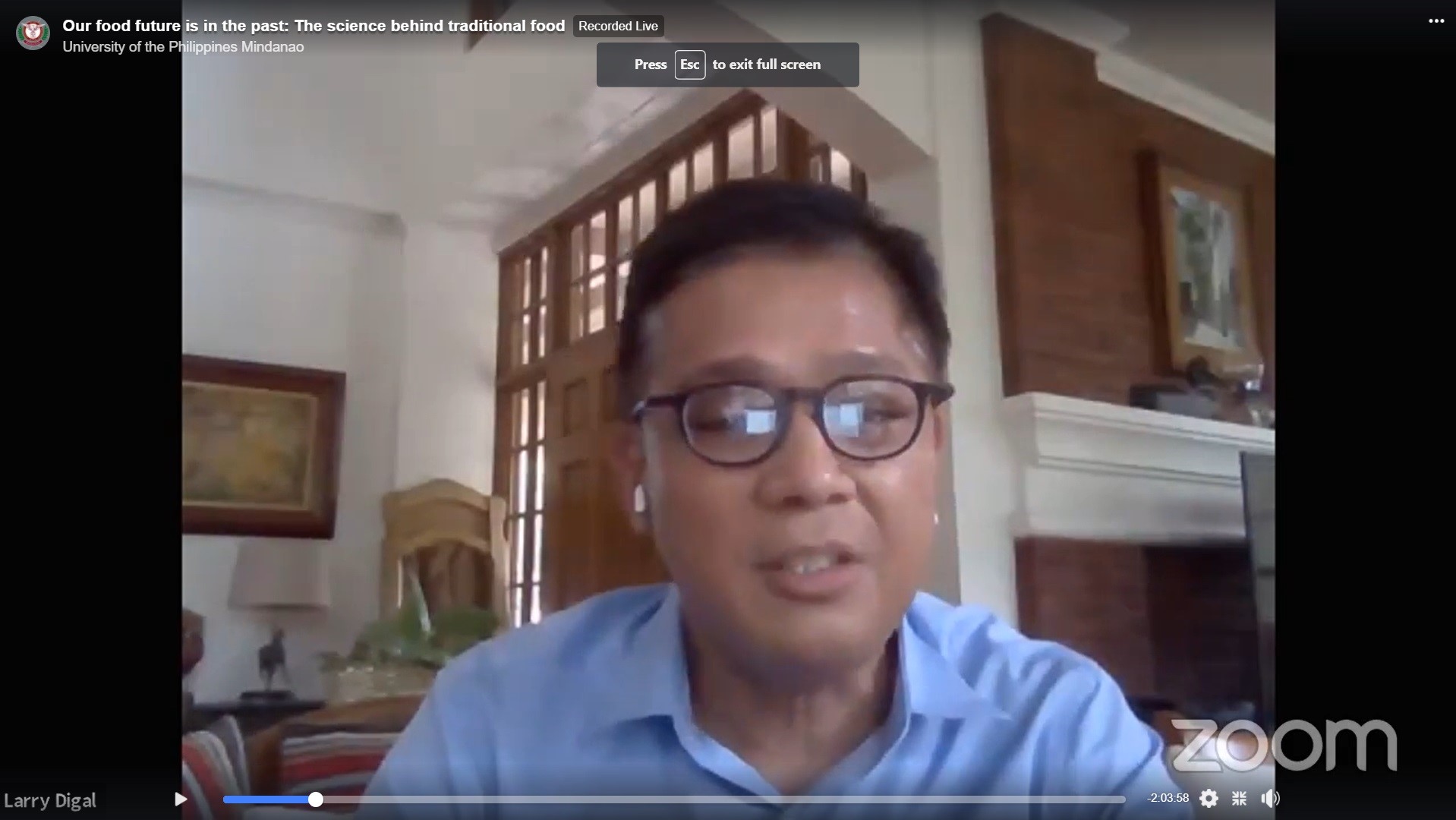 |
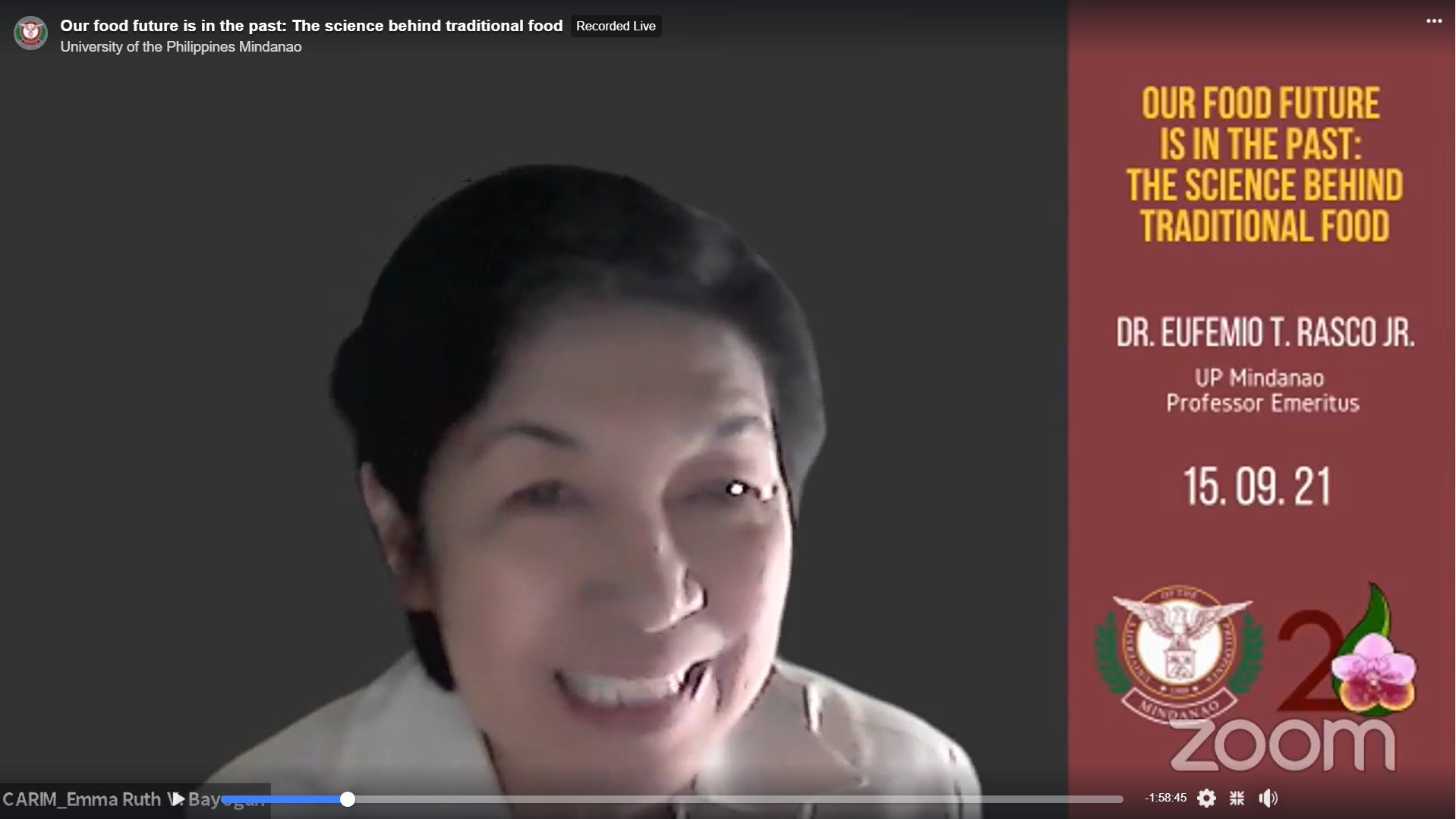 |
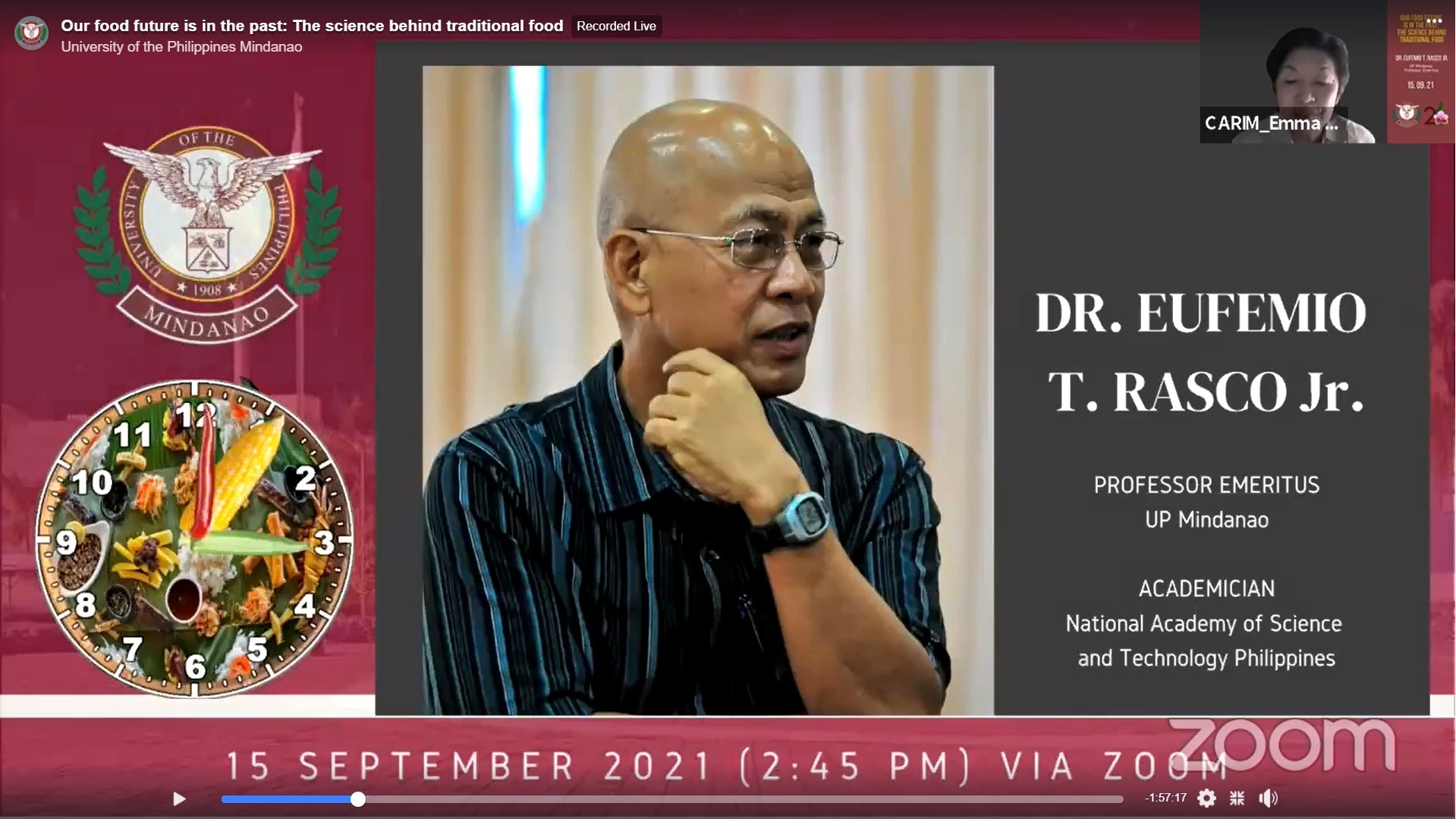 |
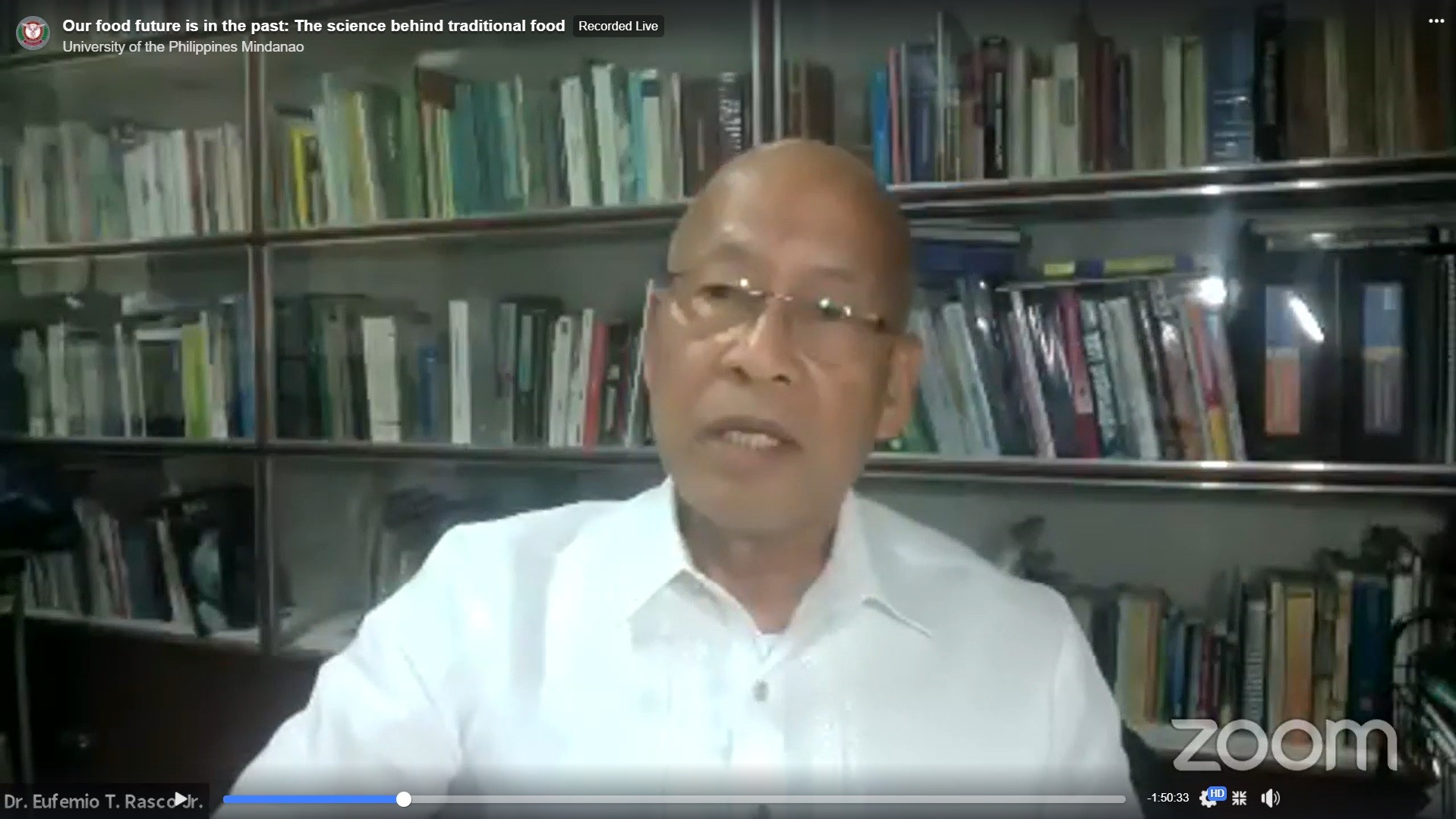 |
From top, left: Chancellor Larry Digal gives Welcome Remarks; Prof. Emma Ruth Bayogan introduces the lecturer; Professor Emeritus Eufemio Rasco Jr.
The University of the Philippines Mindanao’s Center for the Advancement of Research in Mindanao (CARIM) held a virtual lecture by Dr. Eufemio T. Rasco Jr., entitled “Our Food Future is in the Past: The Science Behind Traditional Food”. Dr. Rasco is a National Academy of Science and Technology Academician and the first Professor Emeritus of the University of the Philippines Mindanao.
He started the talk by showing pictures of his yard. The overripe fruits of his santol and mabolo trees were scattered on the ground. He pointed out that these fruits littered his yard, not because of a lack of want on his end to sell them, but of a lack of interest on the consumer’s end to pay well for them. This set up the point of the lecture. It proposed that the current food culture in the Philippines does not value our traditional crops as much as it does those that are marketed by the western nations. It also argued that, comparatively, our local fruits provide more nourishment than some of their foreign counterparts. He brought up a study by Sheng-Feng Hung, Su-Feng Roan, Tsu-Liang Chang, Hen-Biau King, and Iou-Zen Chen entitled “Analysis of aroma compounds and nutrient contents of mabolo (Diospyros blancoi A. DC.), an ethnobotanical fruit of Austronesian Taiwan'' published in the Journal of Food and Drug Analysis last 2016. The study compared the mabolo fruit to persimmons (PCA and PCNA strains) and apples (red delicious and fuji cultivars). The study found that the mabolo fruit provides more nutritional value.
Dr. Rasco presented three key points during his lecture: (1) the western fast food diet worsens the health of the public and the generations that will come after them as the diet contributes to lifestyle diseases due to its high fat and sugar content, (2) traditional food diet helps in aiding the fight against metabolic diseases, even including COVID-19, and (3) traditional food consumption benefits and aids local rural communities that are pushed out of the market by foreign food industries.
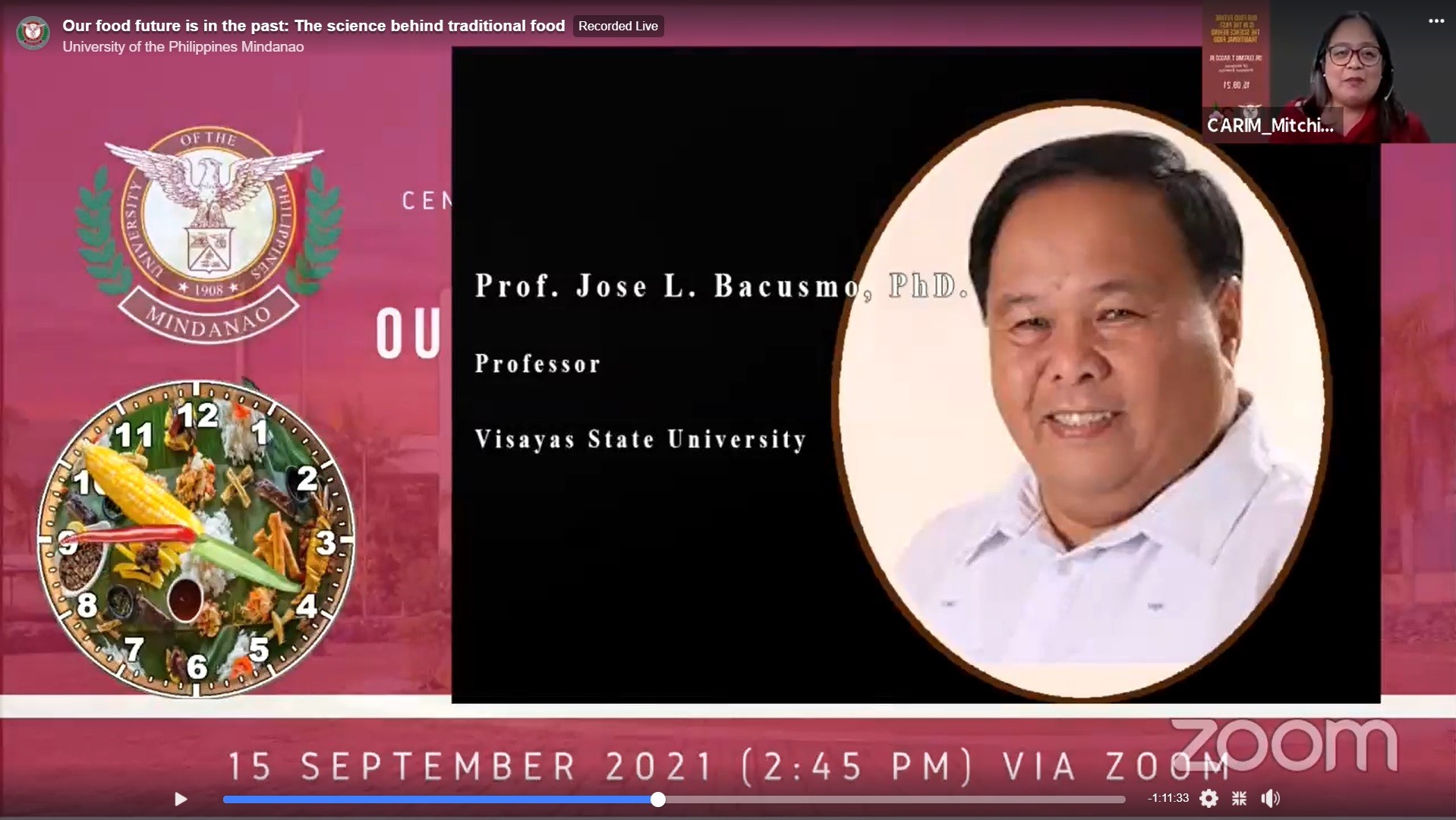 |
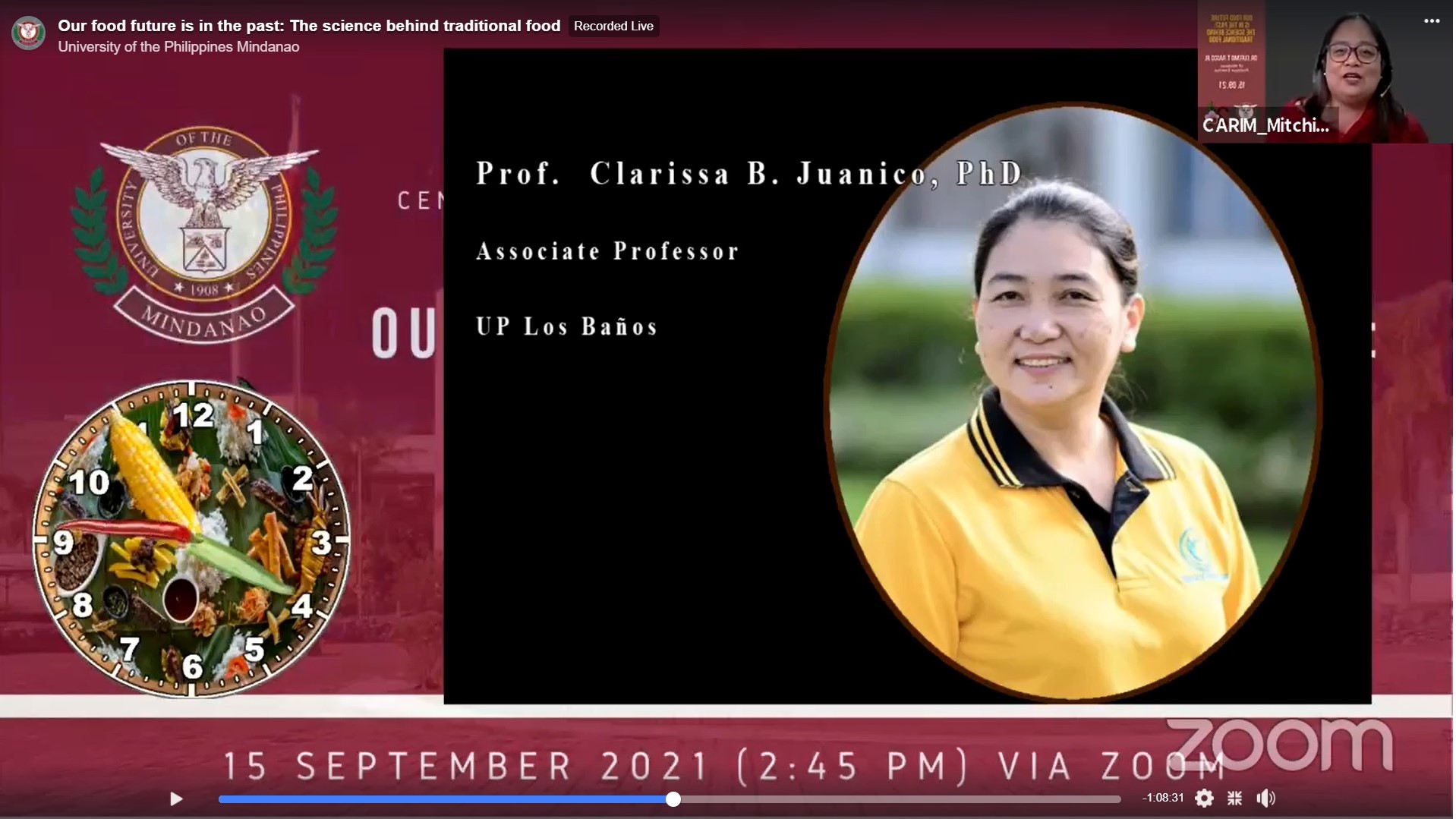 |
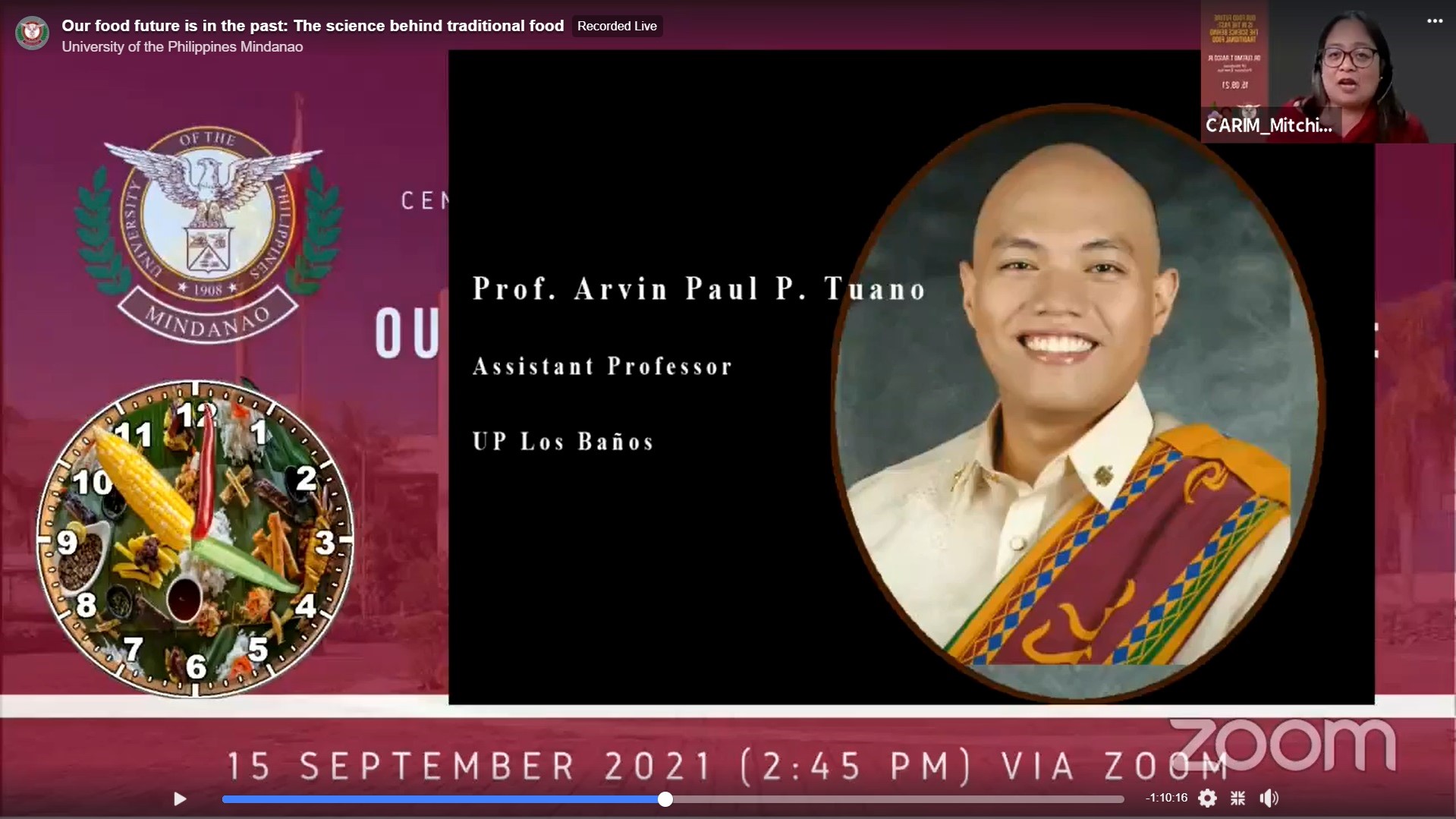 |
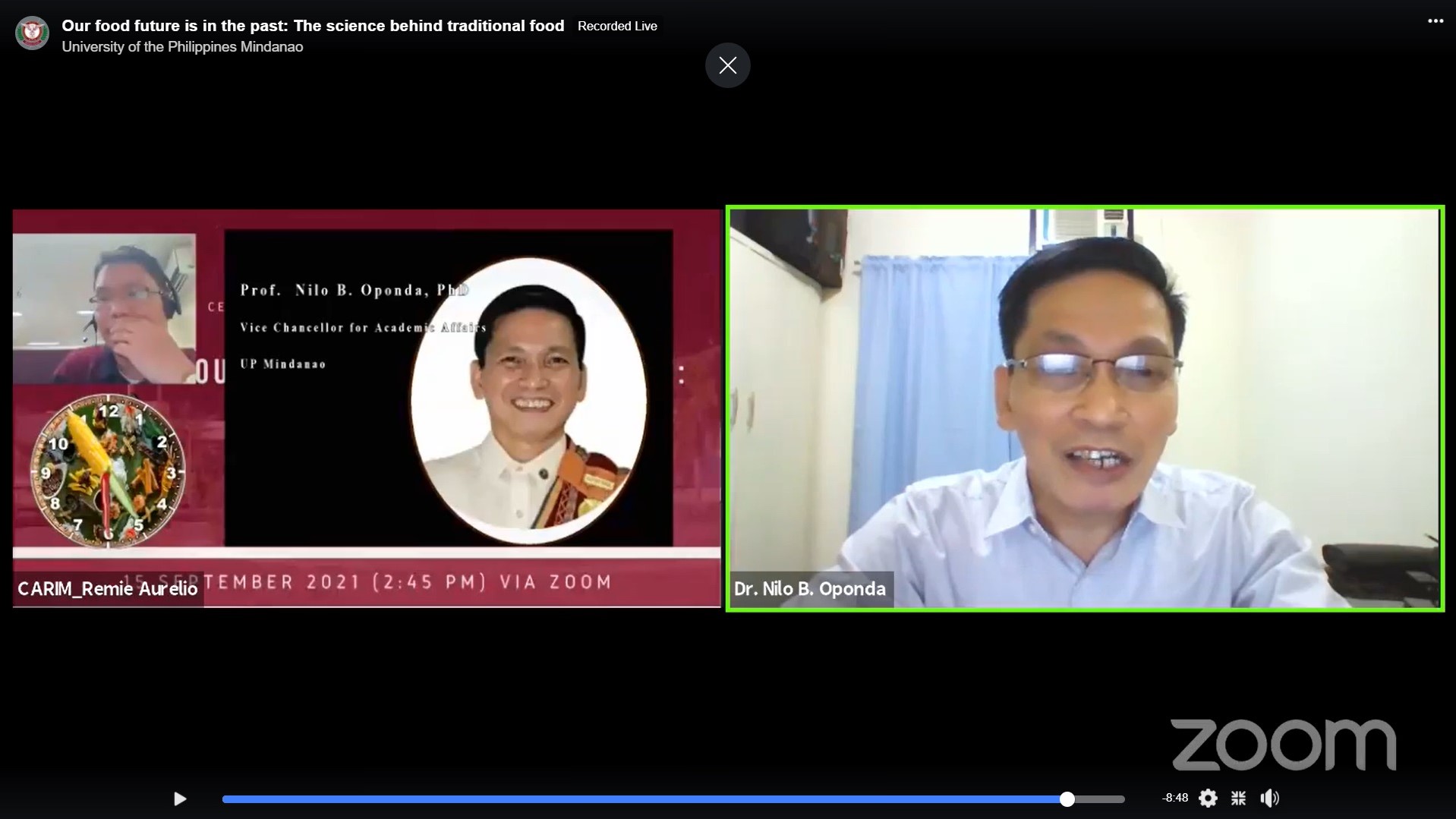 |
Clockwise, from top-left: Reactors Dr. Jose Bacusmo, Dr. Clarissa Juanico, and Asst. Prof. Arvin Paul Tuano; Vice-Chancellor Nilo Oponda gives the Closing Remarks
He ended his presentation by asking for the University of the Philippines Mindanao to lead the re-invigoration and re-invention of the local food cultures in Mindanao. His lecture was then followed up by three panelists, namely: Dr. Jose L. Bacusmo, former president of the Visayas State University; and Prof. Arvin Paul P. Tuana and Dr. Clarissa B. Juanico, both faculty members from the University of the Philippines Los Baños. The panel gave their reactions to the lecture, adding that we should find a way to make traditional food more novel, convenient, and glamorous. They also mentioned that the movement for traditional food has to be a collaborative effort between other fields and sciences, as well as incorporating social media in its push for awareness.
CARIM hosted the lecture through a Zoom call and was attended by faculty members, students, researchers, and government staff from various institutions. A majority of those in attendance were from educational institutions, with 24 different schools and universities represented. Seven government institutions, as well as three private organizations, were also in attendance. A total of 123 people attended the lecture via Zoom. The lecture was also shown as a live broadcast on UP Mindanao’s Facebook page, where it is still available for viewing. An average of 20 viewers were present on Facebook throughout the whole presentation.
Written by: Dave Carl T. Cutler
(The lecture addresses the Sustainable Development Goals on health, hunger, industry, consumption, and other goals)
View the lecture here: https://www.facebook.com/UPMindanao/videos/580015353150085

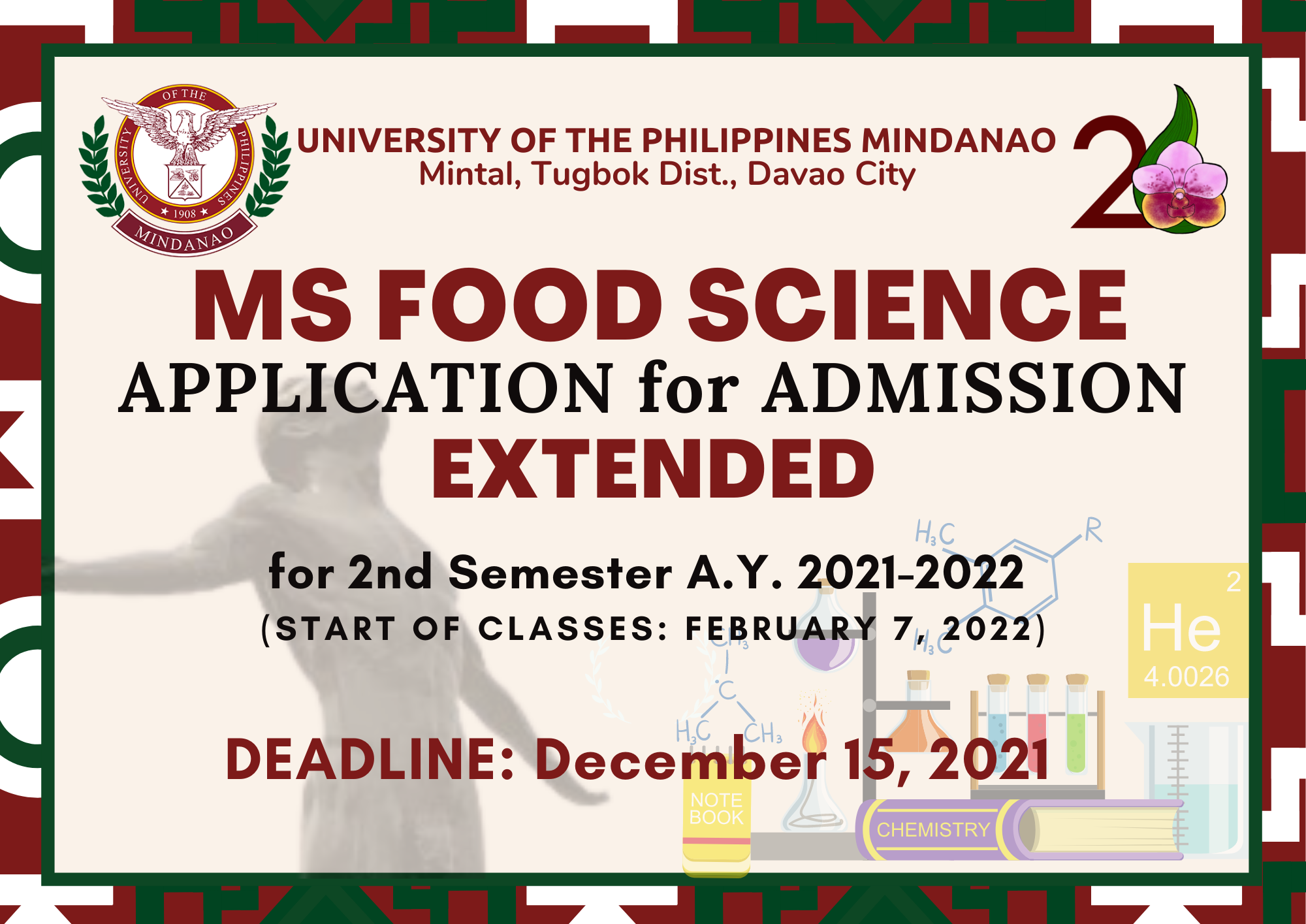
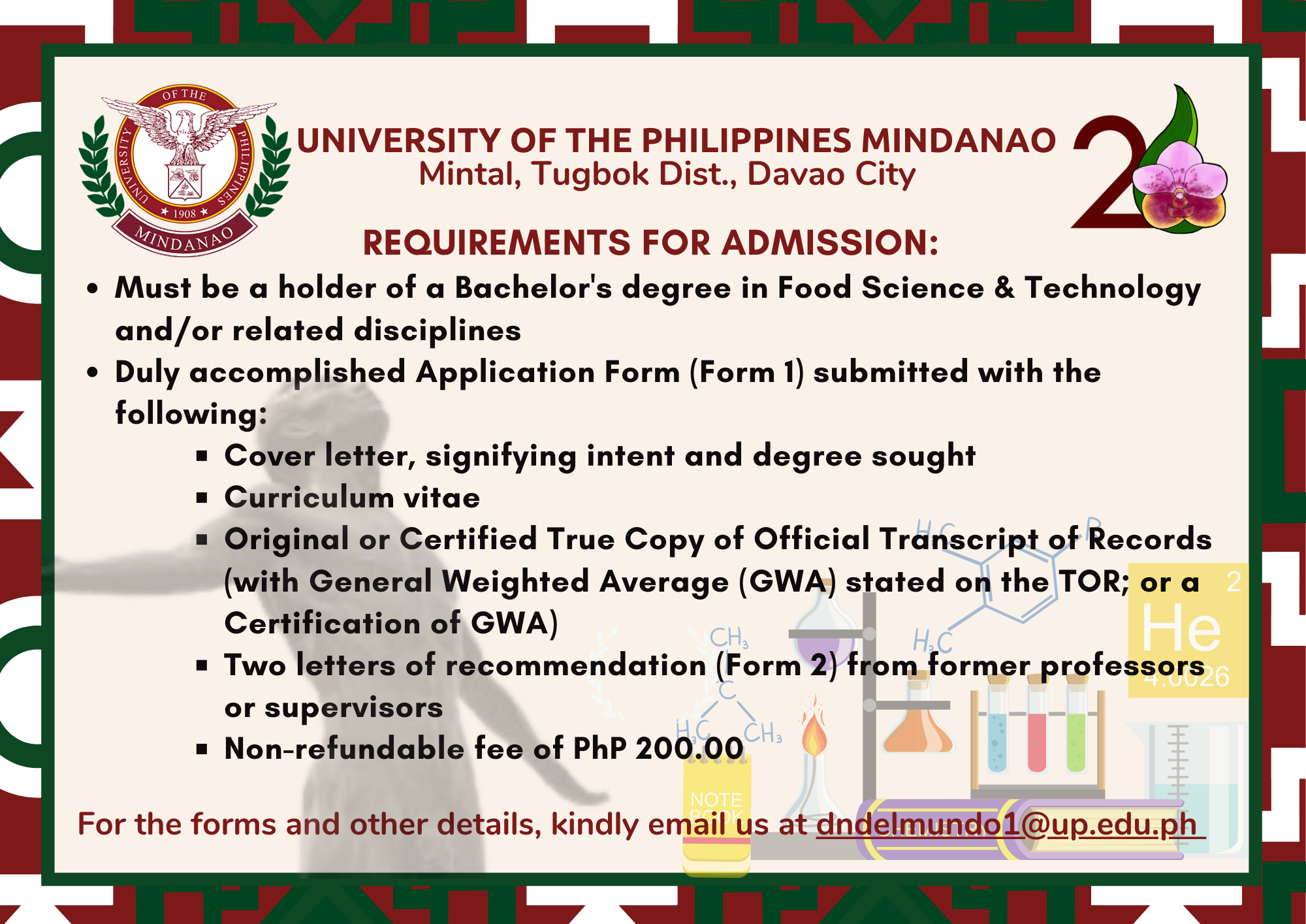
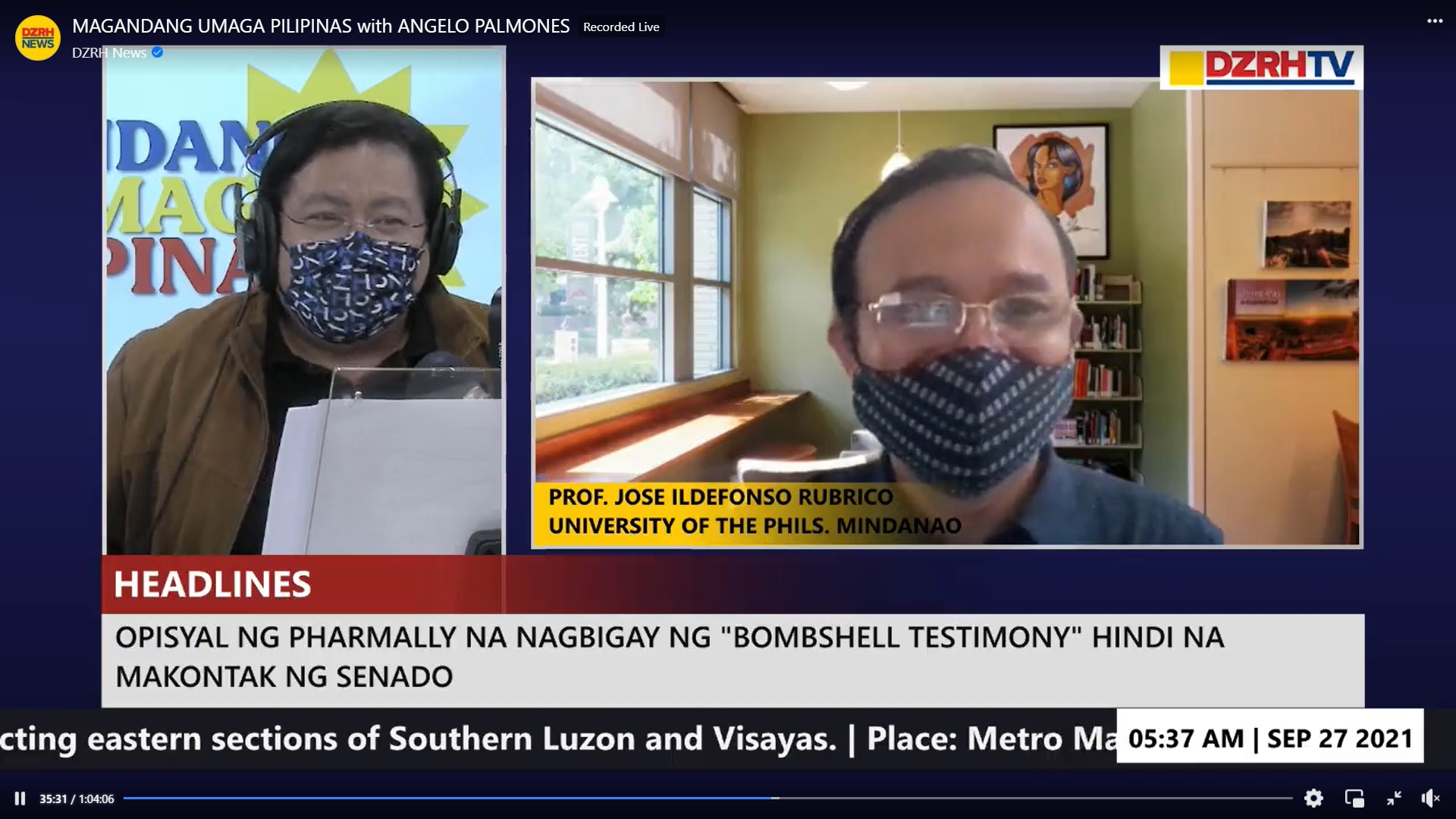 Prof. Jose Ildefonso U. Rubrico, PhD, Program Leader of the "Autonomous Societally Inspired Mission Oriented Vehicles" (ASIMOV) Program, talked about the applications of Artificial Intelligence (AI) and Robotics in an interview with Cong. Angelo Palmones of “Magandang Umaga Pilipinas” on September 27, 2021.
Prof. Jose Ildefonso U. Rubrico, PhD, Program Leader of the "Autonomous Societally Inspired Mission Oriented Vehicles" (ASIMOV) Program, talked about the applications of Artificial Intelligence (AI) and Robotics in an interview with Cong. Angelo Palmones of “Magandang Umaga Pilipinas” on September 27, 2021.





